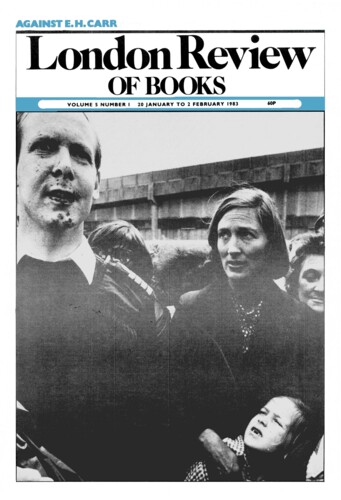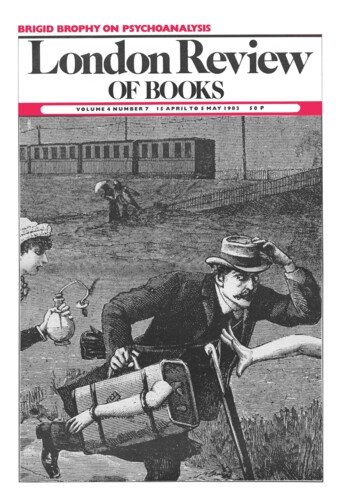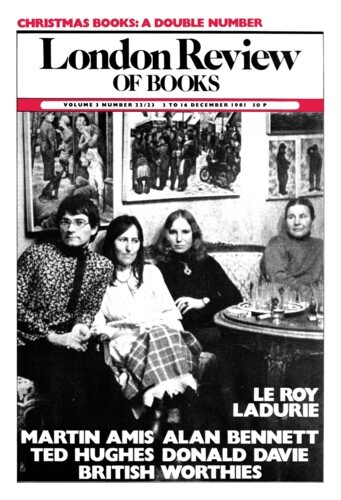Royal Mysteries
V.G. Kiernan, 10 January 1983
What is history, asks Dr Johnson, but ‘a record of wars, treasons and calamities?’ This may be too brusque a summary, but there is really not much history worth cultivating on its own account, or for the sake of keeping alive an industry made up of a swarm of academic grubbers each hidden inside his own molehill. It is only worthwhile if there is something to be learned from it. This book, by one of the most eminent of living historians, is a remarkable demonstration of how past and present can and should be studied side by side. It will be written down in some quarters, transatlantic especially, as propaganda, and dismissed by many moles as ‘moralistic’, a term dear to them, meaning that historians should not try to impart to their fellow-citizens anything useful, but should ‘stick to the facts’: in other words, be content to select and arrange facts in tacit harmony with the prevailing outlook prescribed by the powers that be. Professor Barraclough has written a penetrating historical study which is also a genuine tract for the times, a warning that our world is in deadly and imminent peril. ‘No historical parallel fits neatly and tidily,’ he is well aware, but the affinities he brings out between 1911 and today are many, and disturbingly clear. There is the same atmosphere of universal suspicion, the same ‘almost infantile preoccupation with prestige and an ingrained habit of secrecy and prevarication’. In 1911 a colonial wrangle brought Europe within sight of war: our world resounds with White House sabre-rattling, eagerly echoed by a clattering of knitting-needles from Downing Street.





